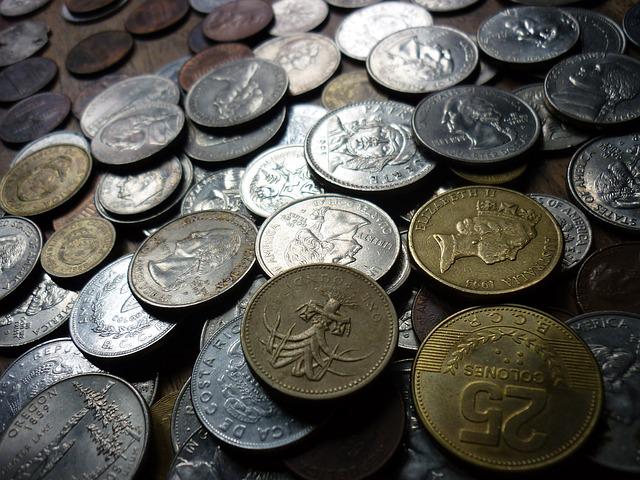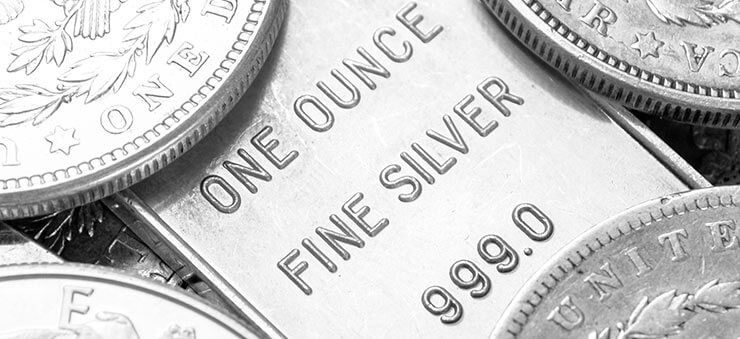Investing in silver is a great way to build wealth. Silver trading can be a boon for your retirement accounts if you have an eye for recognizing opportunities and a knack for making wise financial choices. The demand for this precious metal has continued to grow over time, making it an ideal investment opportunity for people who wish to earn a decent return on their money.
It’s one of the reasons why most renowned investors have invested heavily in silver trading. For instance, Warren Buffet bought more than 130 million worth of silver in 1997 and 1998. Likewise, the following table shows the recent price trends of silver stocks.
| Period | Change ($) | Change (%) |
| 30 Days | -1.80 | -7.62% |
| 6 Months | -1.76 | -7.45% |
| 1 Year | -6.17 | -22.05% |
| 5 Years | 4.70 | 27.43% |
| Since 2000 | 16.40 | 303.14% |
So, it’s safe to say that silver trading is a great option, especially if you are new to trading and want to work with a low-risk asset. But there are some common mistakes people make while trading silver. This post will talk about those mistakes to help you secure your investment and earn better profits.
Having Unrealistic Expectations From Your Investments
Trading requires a lot of patience and smartness. Often, even the most experienced investors fall at the hands of impatience. Since silver stocks don’t fluctuate greatly, patience becomes even more critical. Often, impatience is due to a short-term vision. Hence, investors tend to set unrealistic expectations from their investments, which then backfires.
Generally, a robust strategy accounts for years of investment. So, there is a substantial time before you can reap any benefits. To avoid this simple mistake, traders must invest with a long-term plan and vision.
Opportunistic traders buy when opportunities arise, but they don’t necessarily have a clear understanding of their goals. For instance, if the economic conditions are favorable or the prices drop temporarily, they’ll invest. However, it’s only an indication of unrealistic expectations because it won’t produce the results you might expect once the market stabilizes.
You Don’t Have the Right Understanding of Physical Assets and ETFs
If you want to secure your funds and earn better returns, you must understand the difference between Physical Assets and ETFs. New investors make this mistake and drop out of the trading game without making any profit. Some people mistakenly think if they own an ETF, they are investing in the asset they’re tracking.
When you buy an ETF, you own a fund’s share that owns the underlying asset. ETFs are investments that track an index like gold or silver prices without actually owning any physical assets themselves.
They’re a way to invest in those assets without having direct ownership over them yourself! ETFs are not universally tradable, and it can be tricky to sell them against certain currencies. Since you don’t own silver itself, the metal managers will pay you for the share you own when needed.
Alternatively, owning physical silver means you have its direct ownership. Hence, you can trade it universally because it’s recognized everywhere. But, more importantly, the way ETF shares are calculated, there can be a difference between the price of ETFs and the physical metal for the same quantity.
Dealing With Multiple Traders
Often, investors think about buying from more than one dealer as they assume it will give them more competitive rates. It’s easy to get caught up in the excitement of the process and want to jump into multiple trades, but this can lead to problems down the road. For example, switching between dealers to get a lower price can expose you to scammers.
Generally, these scammers are clever to pick traders looking for multiple deals, so they often inflict a lot of damage. Also, when dealing with various dealers, it’s easy to miss out on reading seller profiles, so you can’t possibly pick whether the seller is an authentic party.
Therefore, it’s better to use tools that help pick suitable sellers. Generally, these tools help enhance your chances of getting more reliable sellers, ensure a better quality of silver, and provide access to the latest updates from the stock market to help you make better trading decisions.
Not Storing Silver Correctly
Improper storage can be especially harmful to lower-tier investors, but it can also be damaging for more experienced investors. Silver is considered less valuable than gold and other precious metals. As a result, people don’t focus too much on its safety and proper storage.
So, you might find them storing silver in jewelry boxes. This practice is dangerous because it doesn’t guarantee any financial safety. Silver is precious and should be treated with care; if you don’t store it correctly, the value of your silver will decrease over time.
Silver corrodes when exposed to moisture and other elements. In addition, silver is a very soft metal. So if you keep it in a drawer or a box without protecting it from other metals, it can get crushed. To keep your silver safe and sound, you should store it in a safe deposit box at your bank or in a vault.
Moreover, you can use a fireproof box to store your silver assets. Or you can look for dealers or financial institutions offering silver storage services. This way, you can avoid managing the metal at your home.
Purchasing Rare Silver Coins

Think of investing in silver as a business than a hobby. If you have a business-oriented mindset, you’ll buy valuable coins in the modern market. Often, people purchase rare coins over silver bullions. That is a common yet crucial mistake.
Rare silver coins are judged on quality instead of size. Moreover, it’s a fragile market, making an assessment of silver coins more difficult and complex. It’s difficult to assess the quality of rare silver coins because they don’t usually have a standardized grading system like bullion bars do.
Bullion coins are easier to purchase online, and their value is less volatile than that of rare coins. They are also more likely to have a greater return on investment, so they’re much more stable as an investment.
Conclusion
Silver trading can be a beneficial deal if you do the right thing. More importantly, it’s about avoiding the common mistakes that often lead traders toward disasters. At times, these mistakes seem unharmful, but they can have lasting impacts in the long run.
Now that you know the most common silver trading mistakes, it should help you invest smarter and earn a better return on your investments.
